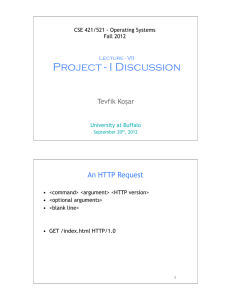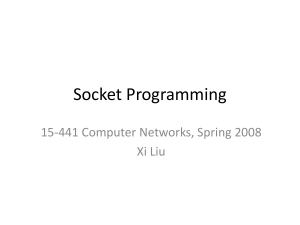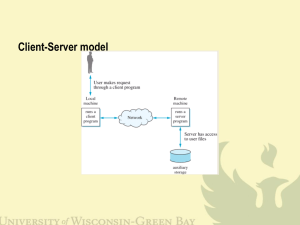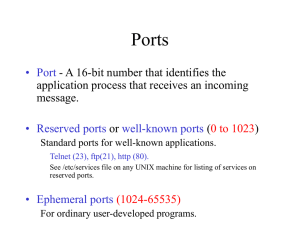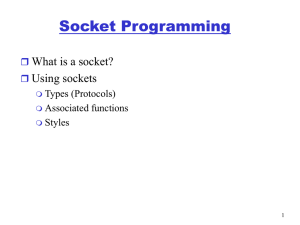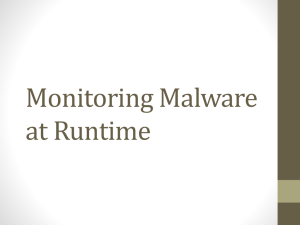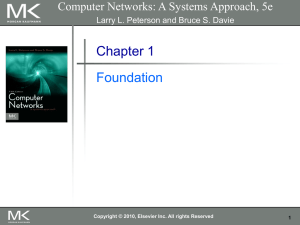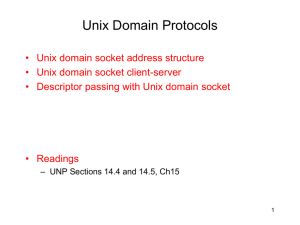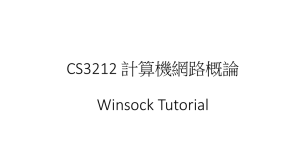Socket Programming Lecture 2
advertisement
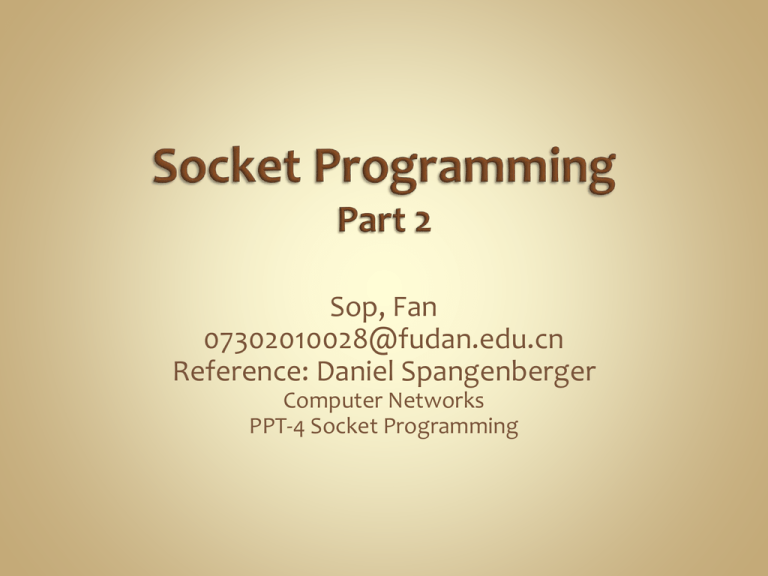
Sop, Fan
07302010028@fudan.edu.cn
Reference: Daniel Spangenberger
Computer Networks
PPT-4 Socket Programming
Concurrency Review
Why should we use …?
Our experiences?
Socket Programming related
System requirement(robustness…)
How to cooperate with socket API?
Example
How to modify the example to fit further requirement?
Clients
User 1
Server
connect()
accept()
fgets()
(goes to lunch)
Blocks!
read()
User 2
connect()
Blocked!
Processes
Uses fork()
Easy to understand(actually we have implemented one version!)
A lot to consider about causing complexity(zombie, syscall…)
Threads
Natural concurrency (new thread per connection)
Easier to understand (you know it already)
Complexity is increased (possible race conditions)
Use non-blocking I/O
Uses select()
Explicit control flow (no race conditions!)
Explicit control flow more complicated though
Fork()
Use Pid to verify different process
Assign different task flow accordingly
Signal & waitpid(…)
Tracing child processes, kill the zombies
Other process control methods?
pthread_create
Create thread according to detailed settings
Pthread(series: join, detach, cancel…)
Imply different polices.
Other thread control methods?
Monitor sockets with select()
int select(int maxfd, fd_set *readfds, fd_set
*writefds, fd_set *exceptfds, const
struct timespec *timeout);
So what’s an fd_set?
Bit vector with FD_SETSIZE bits
maxfd – Max file descriptor + 1
readfs – Bit vector of read descriptors to monitor
writefds – Bit vector of write descriptors to monitor
exceptfds – Read the manpage, set to NULL
timeout – How long to wait with no activity before
returning, NULL for eternity
void FD_ZERO(fd_set *fdset);
Clears all the bits
void FD_SET(int fd, fd_set *fdset);
Sets the bit for fd
void FD_CLR(int fd, fd_set *fdset);
Clears the bit for fd
int FD_ISSET(int fd, fd_set *fdset);
Checks whether fd’s bit is set
Requirements
Mass users
User Experience
Incidents
Server/Network/Client breakdown?
Hacking?
…
Client(s)
socket()
Server
socket()
bind()
listen()
select()
connect()
FD_ISSET(sfd)
accept()
Hacking! Hacking!!!
write()
read()
Server breakdown!
read()
write()
Exceptions here!
close()
check_clients() main loop
read()
close()
…
Socket API offers variable settings to meet different
demands. (methods settings)
Programming concurrency with different detailed
settings .
Exception/ error cases handling
Address re-use
int sock, opts;
sock = socket(…);
// getting the current options
setsockopt(sock, SOL_SOCKET, SO_REUSEADDR, &opts, sizeof(opts));
Non-blocking
// getting current options
if (0 > (opts = fcntl(sock, F_GETFL)))
printf(“Error…\n”);
// modifying and applying
opts = (opts | O_NONBLOCK);
if (fcntl(sock, F_SETFL, opts))
printf(“Error…\n”);
bind(…);
An easy model.
struct sockaddr_in saddr, caddr;
int sockfd, clen, isock;
unsigned short port = 80;
if (0 > (sockfd=socket(AF_INET, SOCK_STREAM, 0)))
printf(“Error creating socket\n”);
memset(&saddr, '\0', sizeof(saddr));
saddr.sin_family = AF_INET;
saddr.sin_addr.s_addr = htonl(INADDR_ANY);
saddr.sin_port = htons(port);
if (0 > (bind(sockfd, (struct sockaddr *) &saddr,
sizeof(saddr)))
printf(“Error binding\n”);
if (listen(sockfd, 5) < 0) { // listen for incoming
connections
printf(“Error listening\n”);
clen = sizeof(caddr)
// Setup your read_set with FD_ZERO and the server socket
descriptor
while (1) {
pool.ready_set = &pool.read_set;
pool.nready = select(pool.maxfd+1, &pool.ready_set,
&pool.write_set, NULL, NULL);
if (FD_ISSET(sockfd, &pool.ready_set)) {
if (0 > (isock = accept(sockfd, (struct sockaddr
*)
&caddr, &clen)))
printf(“Error accepting\n”);
add_client(isock, &caddr, &pool);
}
check_clients(&pool);
}
// close it up down here
Your suggestions?
Architecture
A struct something like this:
typedef struct s_pool {
int maxfd;
fd_set read_set;
fd_set write_set;
fd_set ready_set;
int nready;
//
//
//
//
//
int clientfd[FD_SETSIZE];
largest descriptor in sets
all active read descriptors
all active write descriptors
descriptors ready for reading
return of select()
// max index in client array
// might want to write this
read_buf client_read_buf[FD_SETSIZE];
// what else might be helpful for project 1?
} pool;
Basic Commands
NICK
USER
QUIT
Channel Commands
JOIN
PART
LIST
Advanced Commands
PRIVMSG
WHO
Client(s)
socket()
Server
socket()
bind()
listen()
connect()
Connection Request
select()
FD_ISSET(sfd)
accept()
write()
read()
read()
Client / Server Session(s)
close()
check_clients() main loop
EOF
write()
read()
close()
Strong I/O skills will be a great assistant.
Read more about this field if interested
Books as ‘UNIX Network Programming – The Sockets
Networking API’ will be a good tutorial
Deadline:
2011-4-10
Checkpoint: 2011-3-27
Detailed information will be put on the FTP:
ftp://10.132.141.33/classes/08/102 计算机网络
/PROJECT/project 1
